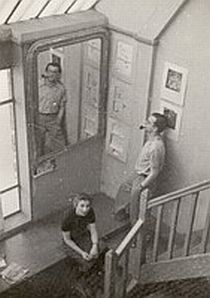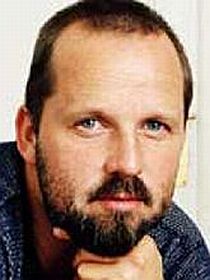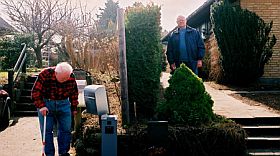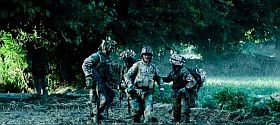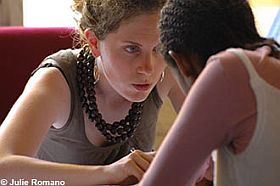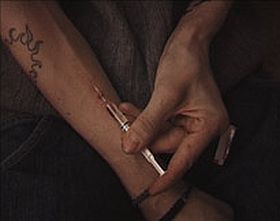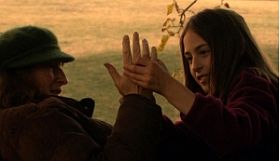


On Being There with Richard Leacock
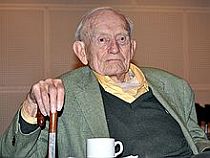
Richard Leacock, 90 years old in 2011, a master of cinema vérité, always energetic and inspirational… finally gets a filmic homage. It happens now at the Telluride Film Festival and it takes place in association with the first public screening of Monica Flaherty’s 1980 sound version of the 1925 film, Moana by Robert Flaherty (Leacock worked with Flaherty in 1946 on Louisiana Story). Wow, film history!
Jane Weiner is the director of the film ”On Being There” on Leacock. Here is an edited clip from the press release that came in this morning:
In the summer of 1972, Jane Weiner started filming with a prototype camera of the experimental Super 8 Sync-Sound-System that Leacock was then developing with Jon Rosenfeld and Al Mecklenberg at M.I.T. Shooting over 4 decades on a variety of ever-changing film and video technologies, Weiner doesn’t hide the image artifacts, film flutter and glitches, which were part and parcel of experimenting in small-format. She follows Leacock to his boyhood home in the Canary Islands – the location of his first oeuvre, Canary Island Bananas; she recounts his relationship with his mentor, Flaherty, and details his involvement and passion for a particular documentary aesthetic developed by Leacock, Pennebaker, and Robert Drew in the early 60’es. The title refers to the ”feel of the place” that Leacock tries to capture in the non-interventional, observational shooting style of cinema vérité… However, in On Being There with Richard Leacock, Weiner often breaks her mentor’s own rule of ”never asking questions”. Constructed as conversation that covers 70 years of his involvement in filmmaking history, the documentary lets Leacock tell his own story in his own words with few comments and/or commentary from his former protégée.
The feature-length film that is being screened in Telluride to honor Leacock, a work-in-progress it is, will be out in 2011 for theatrical and dvd release – and there will be retrospectives and other festival tributes to the master. Can’t wait to see the film! Photo: Leacock, 2009.
http://www.richardleacock.com/32943/About-RichardLeacock-com
